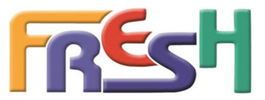SDG 7- Affordable & Clean Energy: A summary of how the FRESH Framework and school programs can help to achieve and monitor this UN Goal
This summary explains how various school-based and school-linked programs support global actions to achieve this goal. The achievement of this goal involves five sectors; including Development Aid, Welfare/Social Protection, Finance/Taxation, Employment and Education & Training, The FRESH Framework and other sources enables us to identify six school programs and four multi-component approaches as well as the indicators related to those school strategies, Five global initiatives. involving schools as a key partner in achieving this goal have also been identified in this summary.
This summary explains how various school-based and school-linked programs support global actions to achieve this goal. The achievement of this goal involves five sectors; including Development Aid, Welfare/Social Protection, Finance/Taxation, Employment and Education & Training, The FRESH Framework and other sources enables us to identify six school programs and four multi-component approaches as well as the indicators related to those school strategies, Five global initiatives. involving schools as a key partner in achieving this goal have also been identified in this summary.
|
Excerpts from UN Description of this Goal:
Goal #7 aims to ensure access to affordable, reliable, sustainable and modern energy for all. Energy is crucial for achieving almost all of the Sustainable Development Goals, from its role in the eradication of poverty through advancements in health, education, water supply and industrialization, to combating climate change. The proportion of the global population with access to electricity has increased steadily, from 79 per cent in 2000 to 85 per cent in 2012. Still, 1.1 billion people are without this valuable service. The proportion of the world’s population with access to clean fuels and technologies for cooking increased from 51 per cent in 2000 to 58 per cent in 2014, although there has been limited progress since 2010. The absolute number of people relying on polluting fuels and technologies for cooking, such as solid fuels and kerosene, however, has actually increased, reaching an estimated three billion people. The share of renewable energy (derived from hydropower, solid and liquid biofuels, wind, the sun, biogas, geothermal and marine sources, and waste) in the world’s total final energy consumption has increased slowly, from 17.4 per cent in 2000 to 18.1 per cent in 2012. Energy intensity, calculated by dividing total primary energy supply by GDP, reveals how much energy is used to produce one unit of economic output. Globally, energy intensity decreased by 1.7 per cent per year from 2010 to 2012.The proportion of the world’s energy use covered by mandatory energy efficiency regulation, which has almost doubled over the past decade, from 14 per cent in 2005 to 27 per cent in 2014, was a factor. Still, current progress is only about two thirds of the pace needed Read more >> |
School Approaches and Programs that address this Goal:
There are several school multi-intervention programs and single interventions that promote efficient energy use and conservation/reductions . These programs are often grouped and coordinated in these multi-component approaches: These school-based and school-linked policies, programs and practices are effective in supporting this goal: The core components of the FRESH Framework also address this goal in these ways: Schools help to develop these skills, values within students related to this goal: |
|
Current & Recent Global/UN Initiatives to Achieve this Goal:
|
Current & Recent Global School Initiatives related to this Goal:
|
|
Overview of UN Targets for this Goal:
7.1 By 2030, ensure universal access to affordable, reliable and modern energy services 7.2 By 2030, increase substantially the share of renewable energy in the global energy mix 7.3 By 2030, double the global rate of improvement in energy efficiency 7.a By 2030, enhance international cooperation to facilitate access to clean energy research and technology, including renewable energy, energy efficiency and advanced and cleaner fossil-fuel technology, and promote investment in energy infrastructure and clean energy technology 7.b By 2030, expand infrastructure and upgrade technology for supplying modern and sustainable energy services for all in developing countries, in particular least developed countries, small island developing States, and land-locked developing countries, in accordance with their respective programmes of support |
School-Related Indicators from the FRESH Framework & School Programs/ Approaches
The following indicators are included in the FRESH Framework, its thematic applications on various health, social, safety and economic problems and other sources or updates on the FRESH Monitoring and Evaluation Guidance. The indicators describe the type, frequency and data sources of monitoring that can be done. As well, the FRESH Framework provides suggestions for monitoring at the national and school levels. As well, the progress being made in relation to the implementation and maintenance of these core components and cross-cutting themes in the FRESH Framework can be monitored in relation to this goal: These school-related organizational and systems capacities should also be monitored in relation to this goal: |
